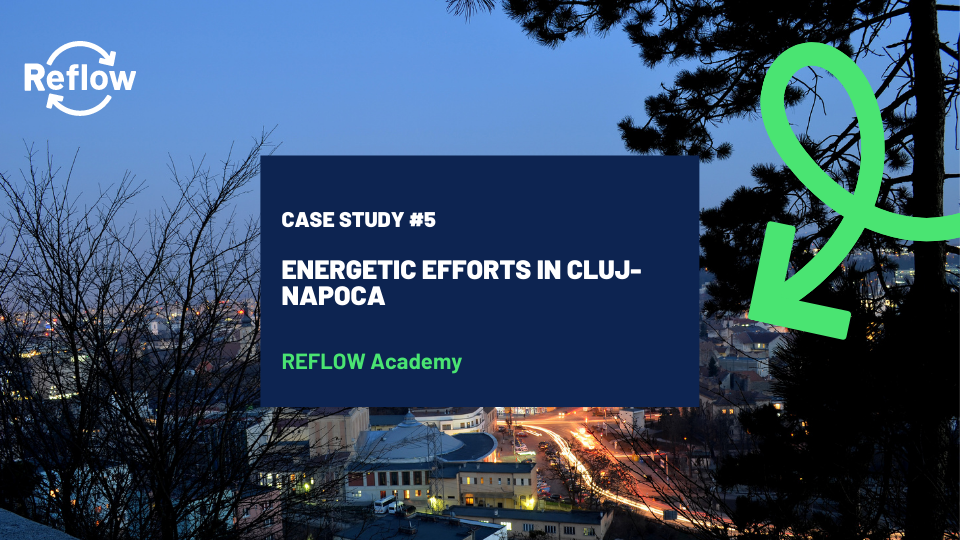REFLOW CASE STUDY #5: ENERGETIC EFFORTS IN CLUJ-NAPOCA
21 April 2022
This case study is part of the open source REFLOW case studies collection which is built upon the learnings from activities and actions taking place in the pilot cities of the REFLOW project. The case studies link practice and theory and are designed to be used as teaching material in different academic settings, as circular economy transition in cities can be addressed from different academic lenses – urban studies, consumer studies, business studies, sustainability studies…
Synopsis of the Case
This case is based on a real organisation that has carried out activities as part of the European Union Horizon 2020 project, REFLOW. While the case is based on a real organisation and other elements, the case is fictionalised. The main protagonist is the coordinator of the Cluj-Napoca pilot city, Mihai Barbu. The coordinator and his team encounter a barrier to accessing energy consumption data needed for a technological solution which they believe could help to raise awareness on energy consumption and lead to the increased energy efficiency, reduction in energy consumption, and towards the overall energy and circular transition in the city. The gatekeepers of the data, the partly state-owned energy distributor, does not want to release their data needed for the technological solution. With the clock ticking on the REFLOW project’s timespan, the coordinator must now figure out what the next steps of the Cluj-Napoca pilot will be. The students are asked to assess what could be done in this situation. Could there be any potential for making a convincing argument or should they go in a different direction, if so, what?
Target Group
The case is suitable for courses in energy transition, strategy and innovation, data governance, strategic decision making, and sustainability courses at the undergraduate and graduate levels.
Learning Objectives
The learning objectives of this case aim to have students evaluate and assess the situation with sustainable and circular projects and the barriers to data sharing. With the pressing need to transition towards more sustainable and circular economies, technological solutions play a key role in ensuring this. However, accessing data is not always easy, especially when there are challenges associated with actors and large public organisations that are more rigid and bureaucratic. After completion of this case, students should be able to understand the following:
- The barriers to data sharing for technological solutions when dealing with bureaucratic and rigid actors
- Learn about the importance of energy transitions and the reality of making sustainable and circular solutions when you do not have feasible access to the data
The case also allows students to make their own assessment of the situation and to identify pathways for how to move forward with a project when things do not go as planned. Students can also be asked to evaluate the scalability and replicability of this place-based situation and if their solution to the dilemma could be translated to other contexts.
Teaching material
Download the full case study
Download the teaching guide